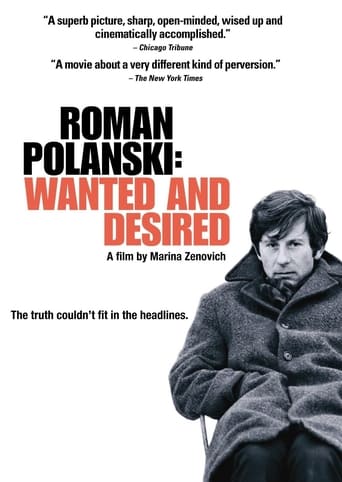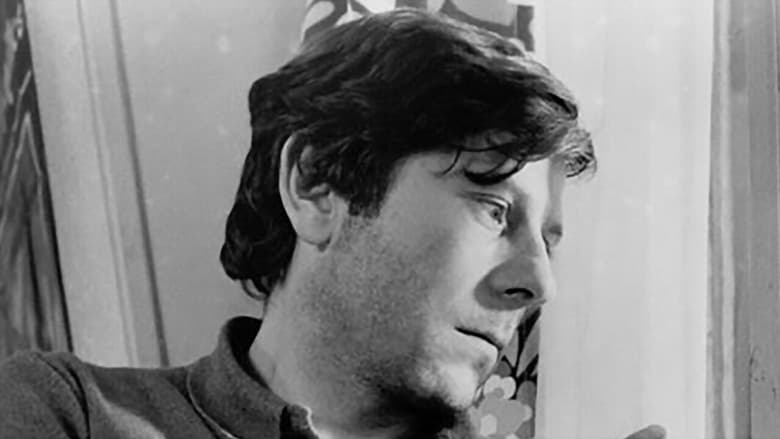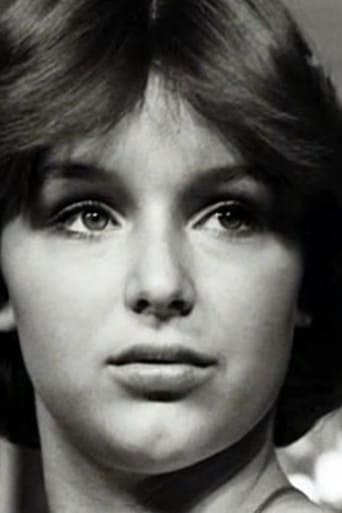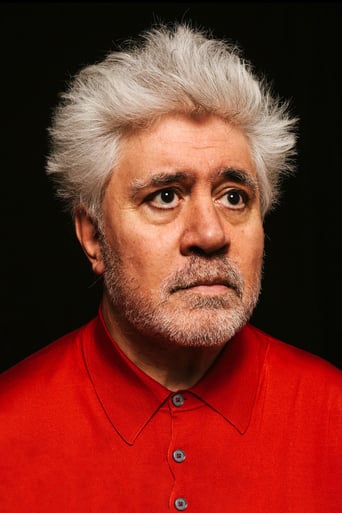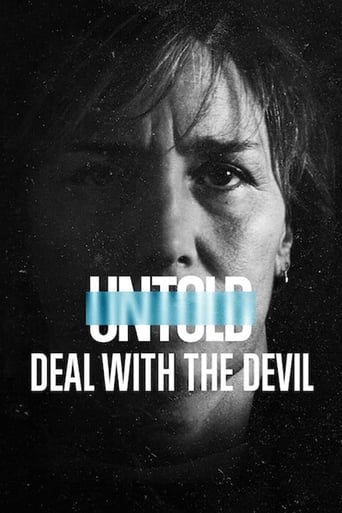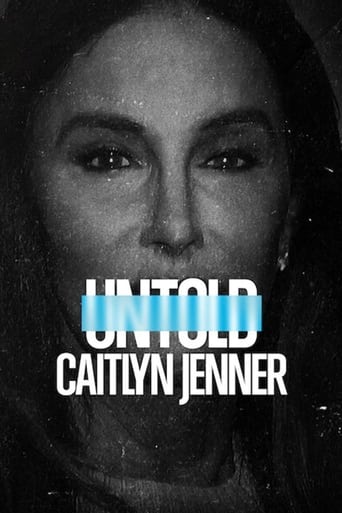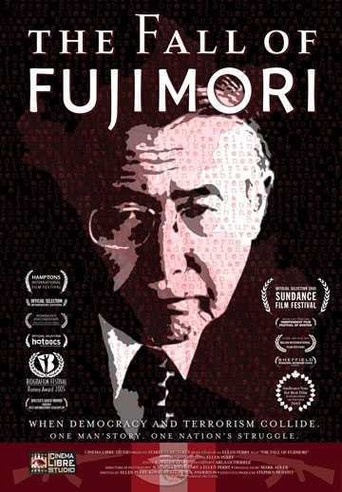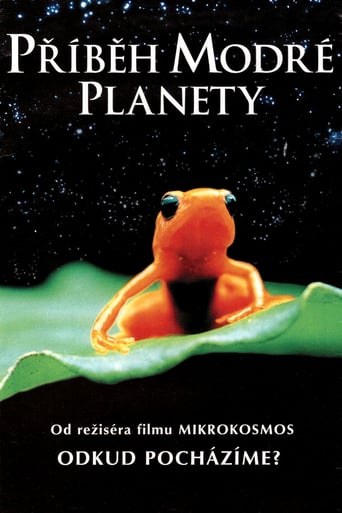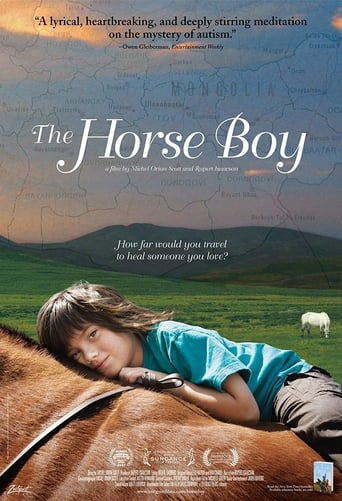Roman Polanski: Wanted and Desired (2008)
Examines the public scandal and private tragedy which led to legendary director Roman Polanski's sudden flight from the United States.
Watch Trailer
Cast


Similar titles
Reviews
Sorry, this movie sucks
It was OK. I don't see why everyone loves it so much. It wasn't very smart or deep or well-directed.
Good films always raise compelling questions, whether the format is fiction or documentary fact.
This is a coming of age storyline that you've seen in one form or another for decades. It takes a truly unique voice to make yet another one worth watching.
This film does a fine job of what you'd normally see in court on behalf of a guilty defendant. It wastes copious amounts of time clouding a very simple issue. You did the crime. You fled like a thief in the night. Now you have to deal with the consequences of your crime against society. You can't simply pay off the victim. If that was the case then only the poor couldn't simply pay their way out of a crime.And on the suffering. The horrible Polanski suffering!!! You'll hear about what cruelty (yes, "cruelty") poor Roman had to go through by suffering in his chalet, making films and winning awards while others in the industry rally to his defense because that's the way they are. All having their skeletons in the closet which they want to be kept there with the support of the industry.Hurrah for the Swiss, the US and everyone else who wouldn't let this self-entitled film maker get whatever he wants and wash the issue under the carpet. He should have just subjected himself to the court and done whatever time he'd have to do. But he's above it all and the film portrays him as the victim. It gets a 3 because it's not an impartial documentary, despite the fact that it does provide a good deal of information about the issue.
At the first sight "Polanski: wanted and desired" has been made to reread a special event of this great filmmaker's life but on the other hand pretexts Polanski's judiciary story to review his life and also his works. In addition to reportage aspects, this doc has many features of a portrait documentary, getting back the survey in time to identify roots of Polanski's childhood and his family. In this way, the director Marina Zenovich even goes back to amateur short films of Polanski. "Polanski " exposes repeatedly mentioned but still attractive and important "moral judgment" as a basic element. It's about concealed corners of an apparently transparent event and shows how time passing washes out the dusts from the surface. Exploring hidden aspects, gives an opportunity for a new judgment but I think the most important aspect of this doc is about individuality, and the reality of an artist, With his all merits, defects, vulnerabilities and fragility without any resemblance to immortal mythic heroes or legends Sometimes these events leak in the artist's works and sometimes the creatures of an artist's mind mystically presage future events. For example the plot of "Fat and thin", a B&W short film by Polanski (1961), in which he is such a slave that ridiculously dances by the Master's drumming, reappearances later like a horrific nightmare in his real life, at the height of his fame and he is trifled by a tedious judiciary process. He dances passively, with drums' beats. "Polanski " uses magic and brilliant score of "Rosemary's baby" (a masterpiece composed by Krzysztof Komeda for this Polanski's masterwork) for the opening of Polanski's cinematic portrait; not an original idea but still impressive. Surprisingly precise similarity between Rosemary Woodhouse and Roman Polanski and also their matching loneliness are enigmatic. Why that ghastly sad lullaby of Rosemary is considered as a symbol of Polanski? In "Kid stays in the picture" (2002), a brilliant doc about Robert Evans, legendary Hollywood producer and former paramount's man; we see how he became familiar with Polanski & picked him for directing "Rosemary's baby" against company's hesitation. We also hear Mia Farrow's sad lullaby there when Polanski appears in archival footages. Polanski in one of his brightest works, "tenant" (1976), which "Polanski: wanted " refers to it many times, goes down into the role of Trelkovsky, a Polish who was born in France and a citizen of that country. During judicial affair, court emphasizes on proving neurosis and personality disorder in Polanski. It's a short but destroyer season in his life, though they got no medical evidence to prove mental disorders but make a horrible time for him during custody. Surprisingly, chaos and neurosis are of his most favorite artistic motives either before 1977 (court time) or after that. In "Tenant", a key work for Polanski and an important movie for analysis, Trelkovsky (played by Polanski) gradually transforms to another person, and experiences several kinds of psychological instability. In spite of several references to "Tenant" in regard to meaningful presence of Polanski in the role of cursed Trelkovsky, there are no specific explanations about it in Zenovich's documentary. Polanski makes a self-disclosing presence in "Tenant" that filmed a few years after brutal murder of his wife Sharon Tate, just two weeks before time she was supposed to deliver her newborn. In "tenant", Polanski/Trelkovsky is a victim in the clutch of anthropoid demons. Polanski's reaction to the news of his wife's murder includes several archival footages, some pictures and a narration by one of his friends, showing horrible and devastating effect of that event on him impressively. Even in these limited images we can see sudden breaking and painful collapse. Despite all these, great disaster of his life was just on the way. Just a year after the hell of Trelkovsky a horrid event knocked Polanski down, and he never could stand up of that ever today. The importance of "Tenant" does not end here. Humiliation against Trelkovsky's polish and Jewish root that we see in this movie in interrogation sequence at the police station represents racist and scornful behavior Polanski experienced in America. This border-less humiliation even let American media ridicule his appearance and of course these were the same media had honored him before. Marshal McLuhan, great theorist of media, named such media as "Light bulb" that lack content (light) on their own. At least in a section of the time Polanski was a great catch of the media and this story has been common for some others during decades. "Polanski: wanted and desired" opens with an old footage of an apparently intimate interview in a high grade restaurant and shows Polanski describing his masterwork," China town" (1974). Near the end of this documentary, after reviewing the ups and downs detailed his life, we come back again to the same interview at the restaurant, where Polanski still is fresh and not old yet. At this time, he has escaped the nightmare of United States and has no intention to return. He stares at interviewer, while he is bored of repetitive questions. Polanski's Word in reaction to the content of this conversation makes us face a bitter truth. Before citing that word, better we can have a flash back to the beginning of this article and the question of art: What relation is between a chaotic soul of an artist and the approach which tries to pretend art as a transcendental thing and artist as an innocent human. "Polanski ", Once again exposes this truth that an artist is as well as other persons. She/he is not necessarily strong, pure or devoid of defects and weakness. Perhaps distinction of an artist relates to the ways he sublimates shortcomings into creation of art, to an exalted position. Sublimation is a defensive mechanism against external harms. Polanski escaped America because His languid body and soul could not sit down under punishment, he fled to survive and to add some other masterpieces to the world of cinema.(Summary of a long article by myself)
Roman Polanski Wanted and Desired is a terrific documentary with important flaws, that does not give an answer to the core question of the case - Did Polanski rape minor Samantha Gilmer or was the sex consensual? The documentary, firstly, offers an insight into the life and personality of Polanski, so very much marked by tragedy since his childhood and an insight into his creative genius, with which we all agree. Many of his famous friends offer glimpses of his charm and attractive personality, and of his personal highs and lows before and during his marriage to Sharon Tate, after her murder, and when the rape case came into the light. We also see the way the American media has been treating Polanski since the death of Tate. Most of his friends, being so, always believed in Polanski's innocence. Love is always blind, and never an objective proof of anything - a matter of faith. Their opinion is going to be subjective, and doesn't add anything to the question if he did in fact rape the girl or not? Talent does not make you a better or worse person, just talented.The documentary, secondly, offers an insightful review of Polanski's trial in the USA, and of the many irregularities committed by judge Laurence J Rittenband, who was more thrilled to become famous and punish Polanski a priory than to make Justice. The long interviews with the two lawyers, defendant and prosecutor, and Samantha really help the viewer to understand that Polanski was legally mistreated, and that Rittenband abused his power and proceeded in improper unacceptable legal ways. We understand why Polanski flew the USA, and why he is right at mistrusting the American Press and judicial system. We also understand how silly and outrageous the latest detention of Polanski is.Said this, the documentary somewhat forgets Samantha and does not try to provide enough information about what really happened that night. Did Polanski raped her? Was Samantha lying? Was Samantha used by her mother? The documentary seems to blame her mother for letting her go alone with womanizer Polanski; however, no mother wants her child abused. or harmed The interventions of Samantha on camera are very limited and controlled by the director, and mostly serve to support that Polanski, an herself were used by the judge, and that the trial harmed them both. However, why does the director forget or avoid asking Samantha the main questions, directly, and letting the viewer hear what she has to say? After all, a rapist is never excused no matter how talented he is, even less if he is taking advantage of a teen, even if that girl has had sexual intercourse before. The transcript of the proceedings of the case, with the witnesses testimonials, is available online at http: // www . radaronline . com /sites/ default/ files/ RomanPolanskiTranscripts.pdf In fact, this transcript briefly appears in the documentary, just highlighting the questions made to Samantha, without displaying Samantha's replies in full. By reading Samantha's testimonial one immediately believes her. However, the testimonial of the doctor who examined her that night puts a big question mark to Samantha's testimonial. as he denies she was forced or even sex having taken place. At the same time Polanski's semen was found in Samantha's panties. On the other hand, if my daughter was raped or I was raped I would like that person jailed so he can't do the same to other girls, but the family and Samantha publicly forgave Polanski long ago. If the sex was consensual, and Samantha was not a virgin, why the attorney's office did not charge the other offenders? Where is Polanski's narration of the events of the night? All of these elements are relevant to the case, and should have been directly explored in the documentary. If you want to present an objective documentary about Polanski's case, you have to be objective in the first place, and go all the way.After watching the documentary and reading the transcript of the trial, the case is still as mysterious as before regarding the main question. The documentary is sometimes a panegyric, and does not help to erase the black shadow pending on Polanski's head. However, the documentary does a great job a showcasing the irregularities of Polanski's trial.
It is interesting that this "documentary" was released as efforts were being made to extradite Polanski to the U.S. to stand trial for his alleged drugging and repeated anal raping of a minor. The film seeks to excuse his behavior based upon his horrific past including the loss of much of his family to the Nazis and to excuse his fleeing trial because of the judges alleged reneging on some deals he'd cut with Polanski regarding which crimes He'd would be charged with. The shameless way in which this film slants every detail to curry sympathy for this repeat pedophile strains credulity. It is unlikely his affliction can be traced to his parents demise and even if it did it would not excuse his crimes merely how they would be punished/treated. One of the films characters even accuses Polanski's detractors of playing the blame game while simultaneously blaming the victims parents for allowing her to be photographed, unchaperoned, by Polanski. Admittedly this was not a wise move , but who'd think that a high profile personality with such resources would stoop to such a heinous and ham-fisted act.The film did gather some fascinating information though, namely regarding the support Ploanski enjoys from a number of Film industry moguls. One is left to speculate on why this may be but in the end they are besmirching their own characters. Even the country of France, of which I am personally quite fond of for a number of reasons is left looking barbaric in their harboring of Polanski, though it should be pointed out that three quarters of it's people favor his extradition. It is one thing to dismiss sex with children under 16 years of age , it happens here certainly, but not with a forty-three year old. And to turn a blind eye to drugging and raping a 13 year old child is inexplicable.I have to give the film credit for weaving a story in a smooth and well produced fashion and for piecing together a substantial cast of participants who were involved with Polanski and his case at varying levels, but the degree of bias and the yawning lapses in logic and moral bearing are ultimately inexcusable. I would not be surprised to learn that Mr. Polanski funded the project himself.

